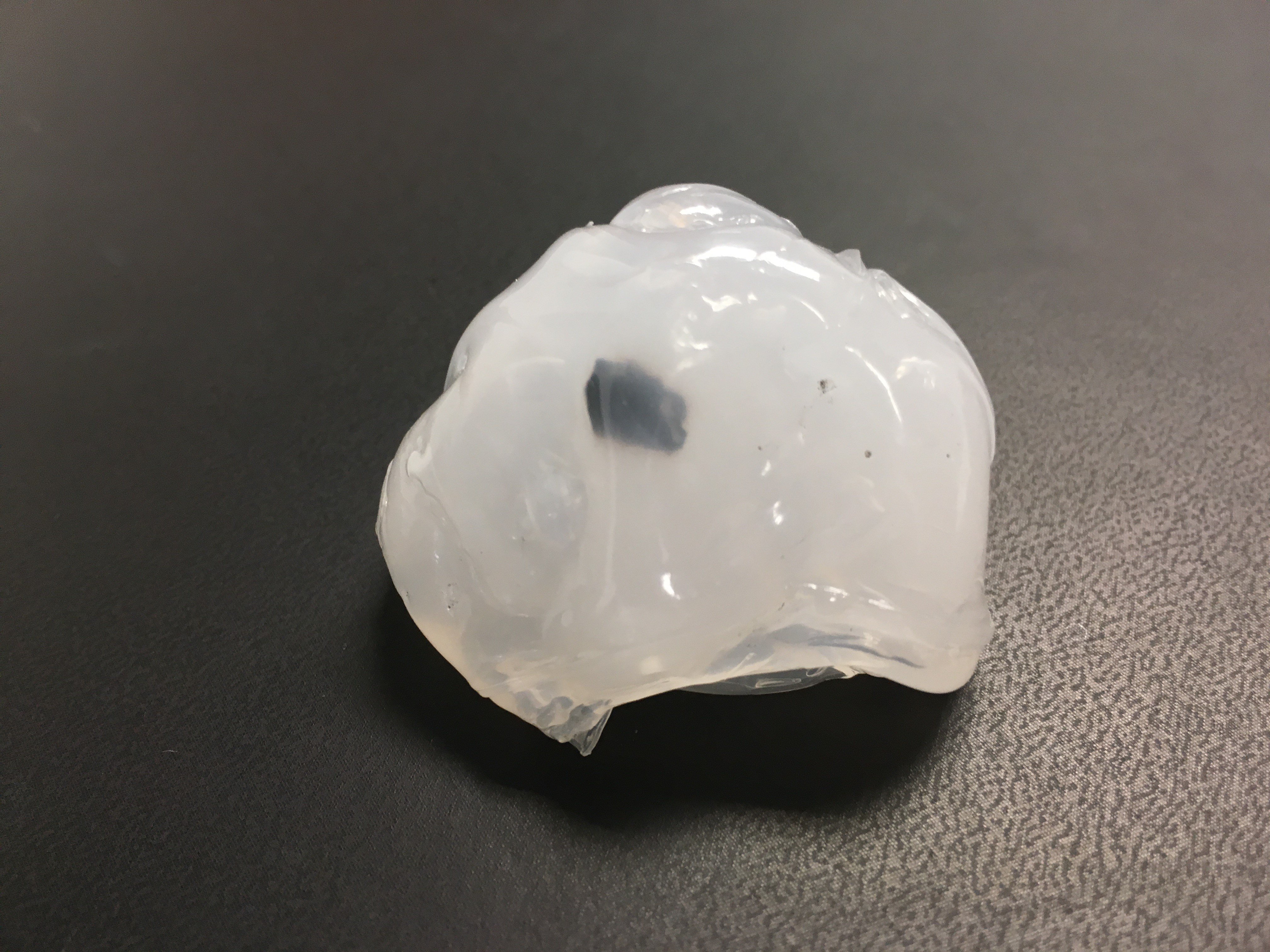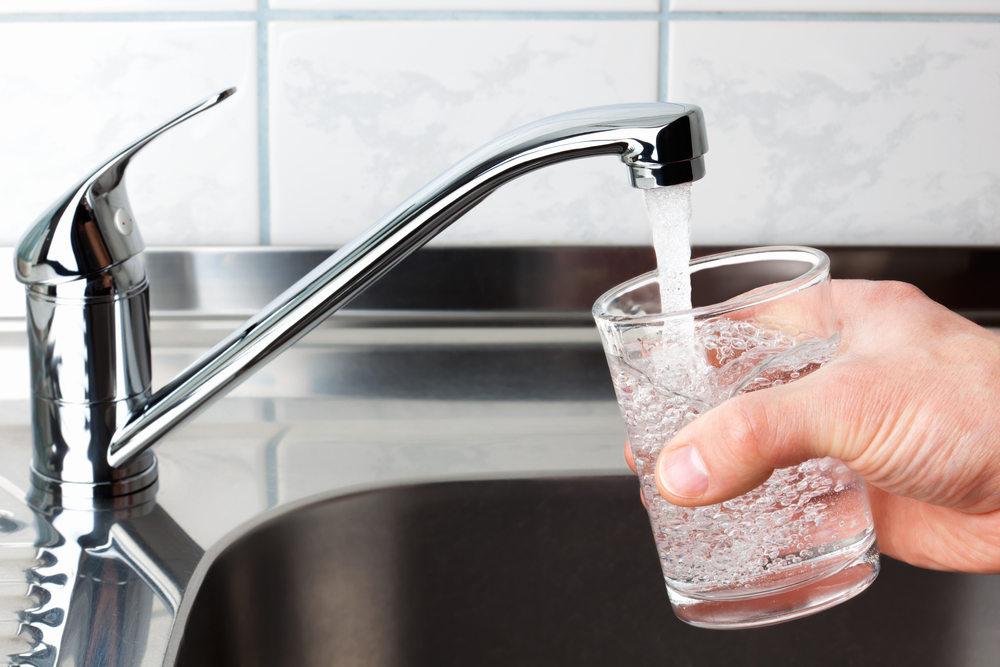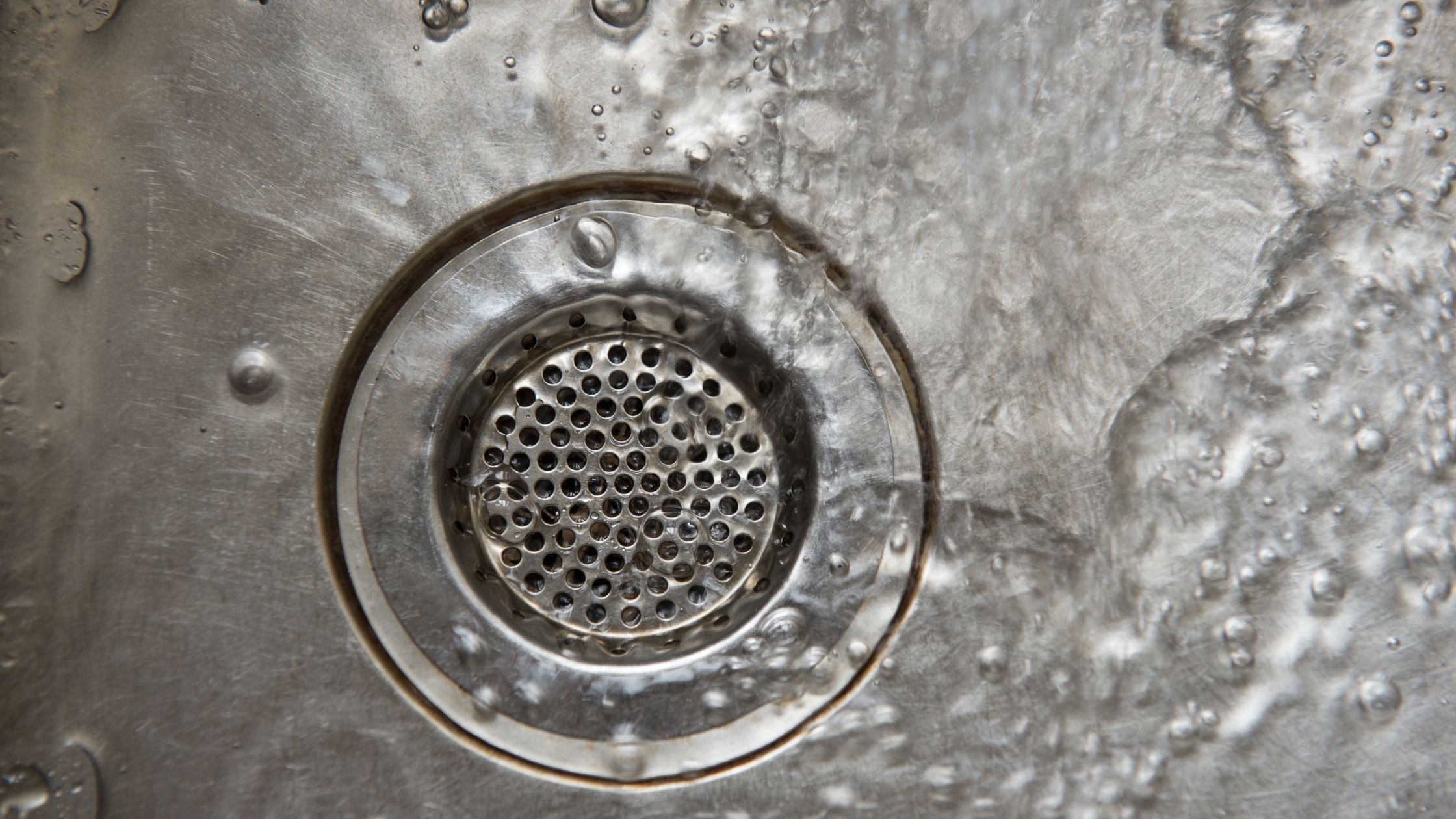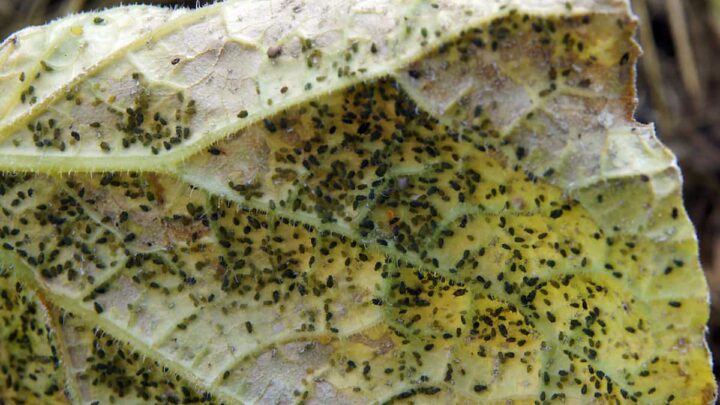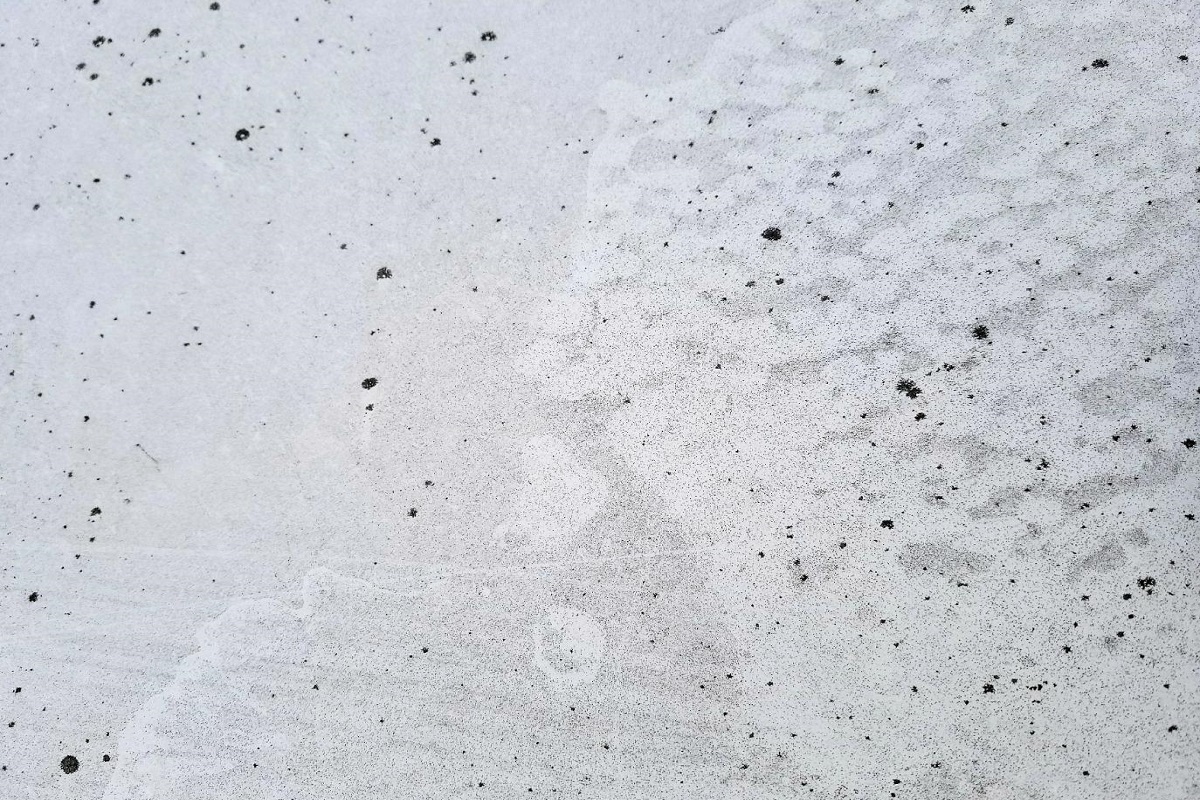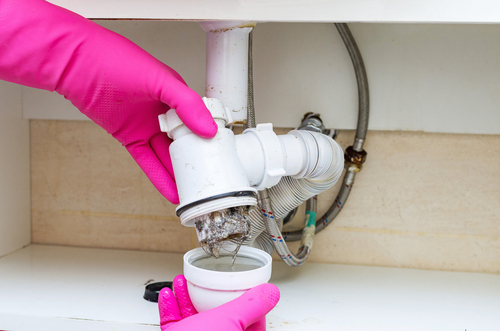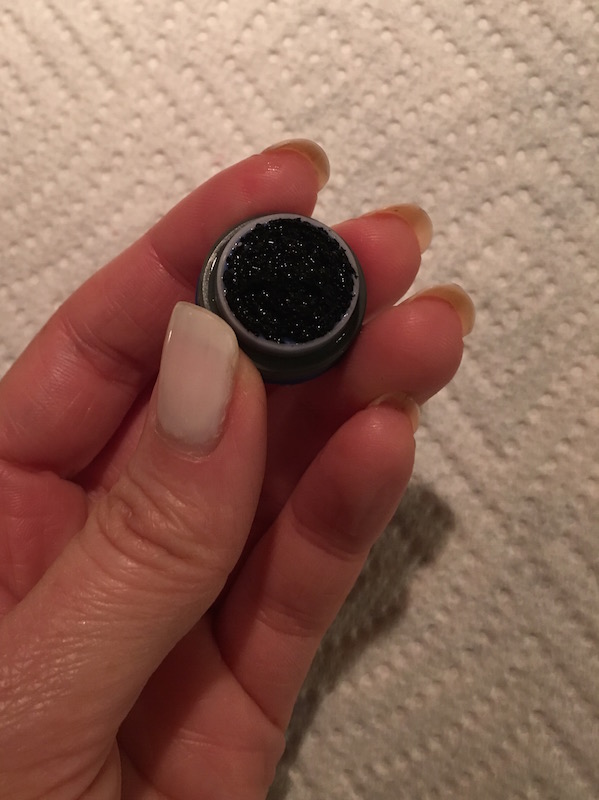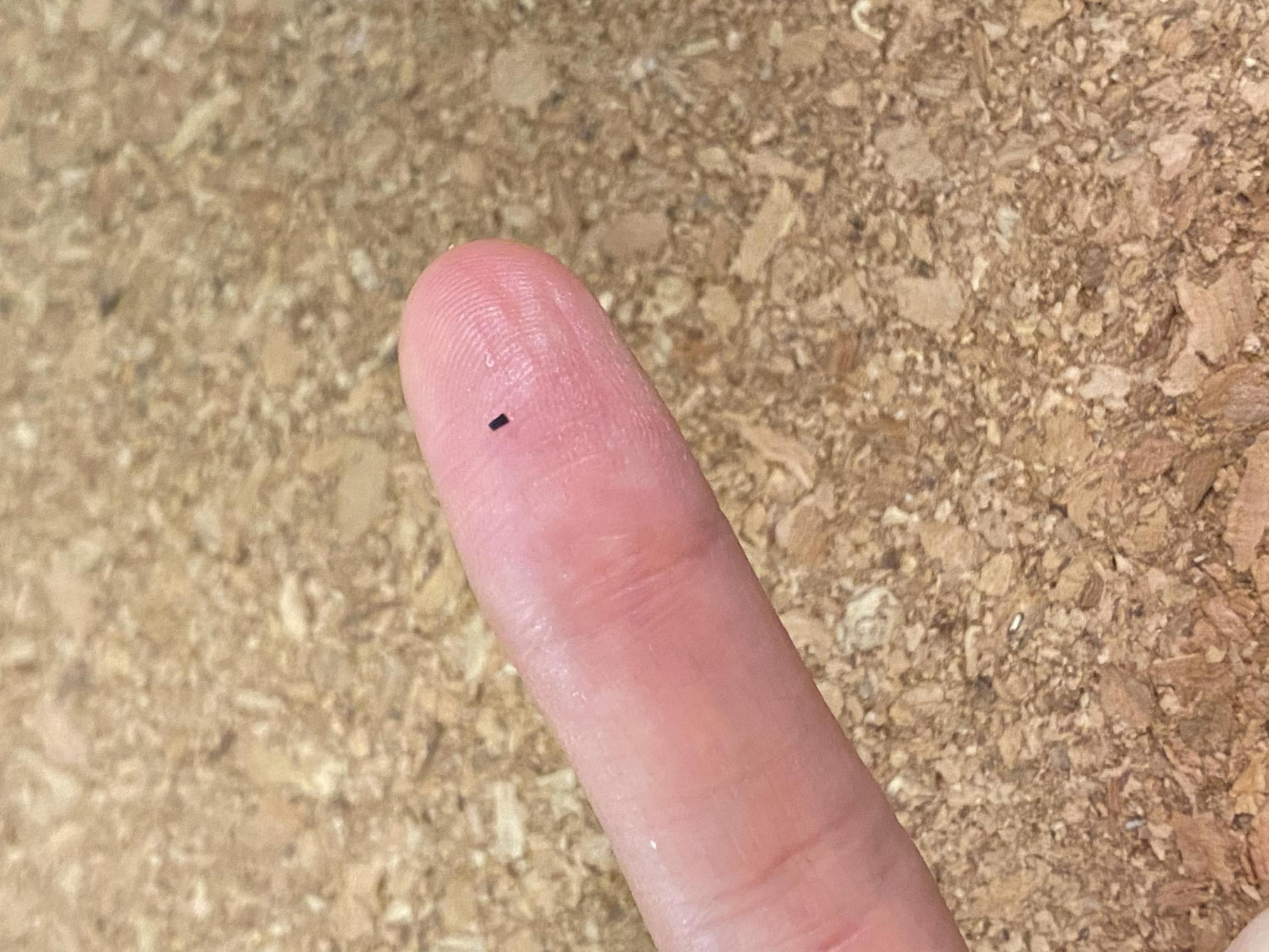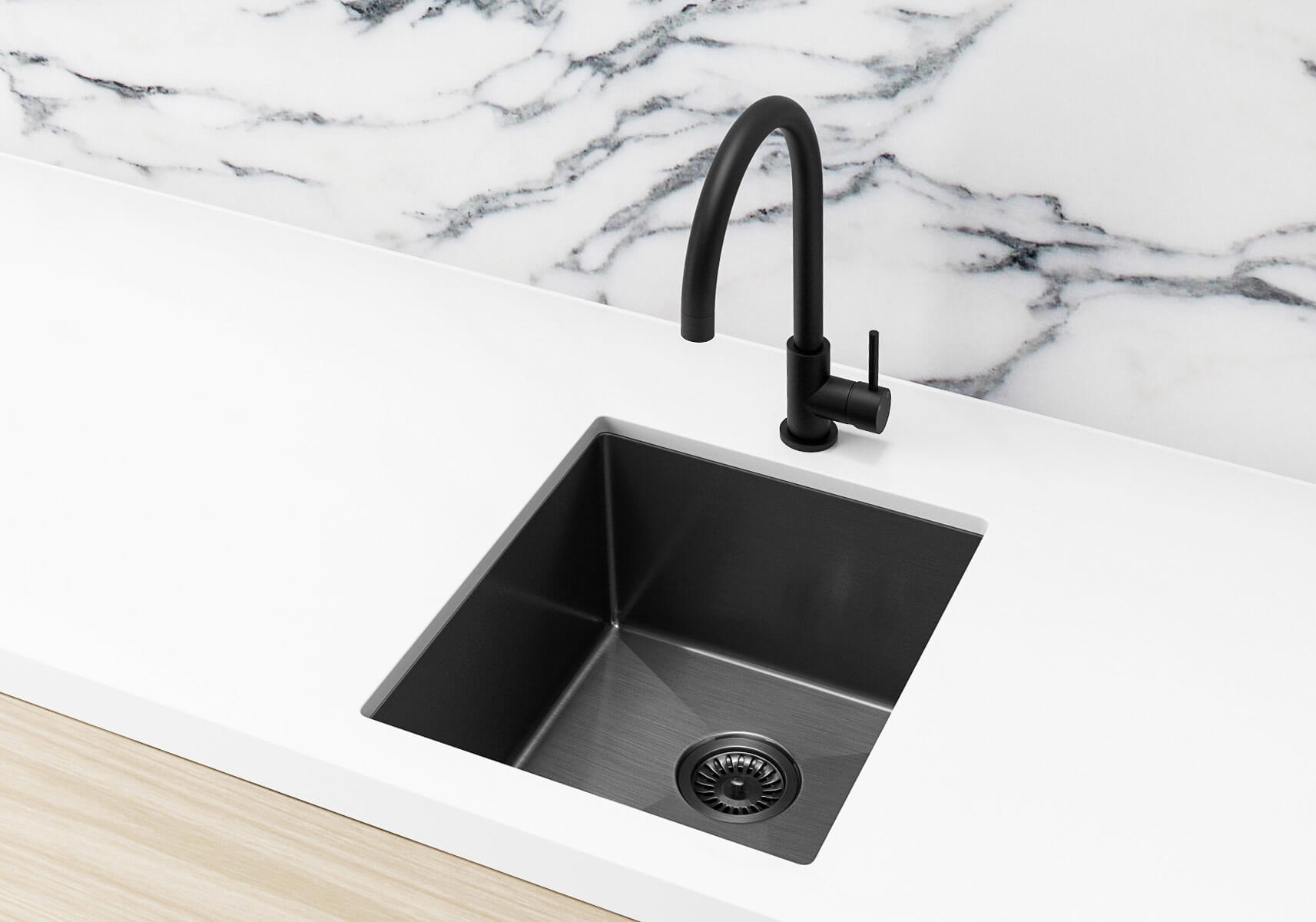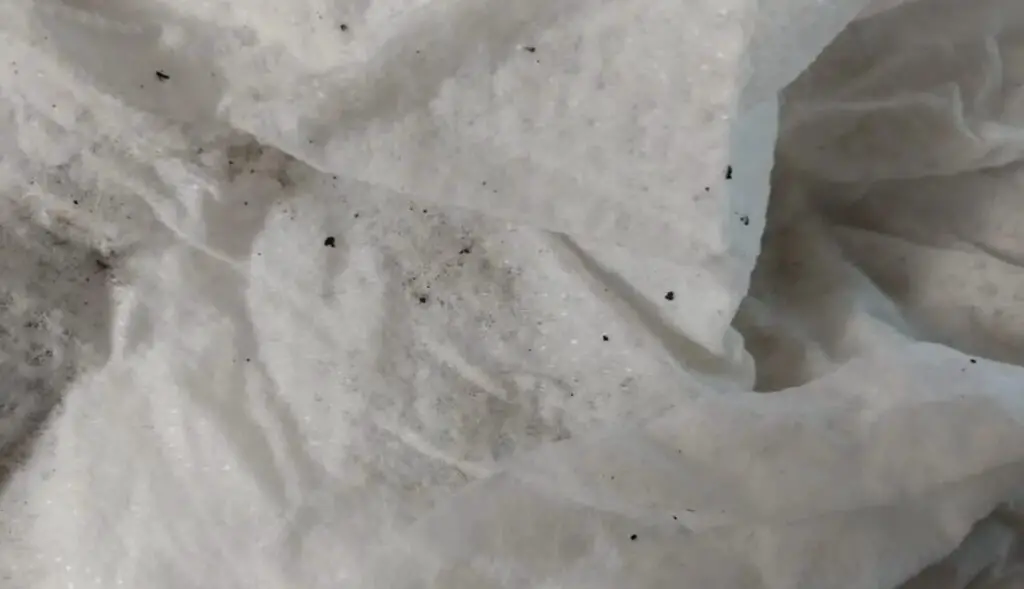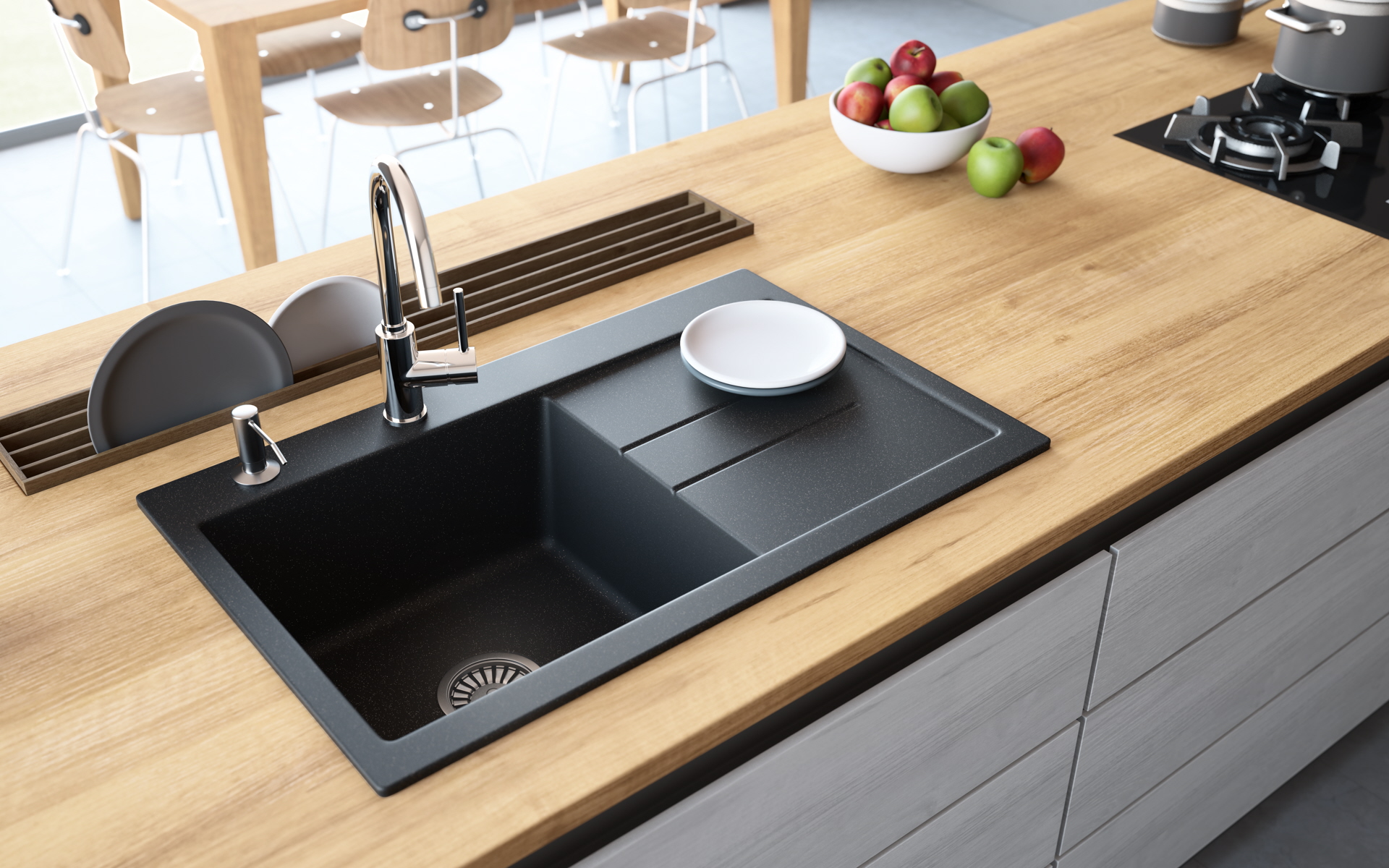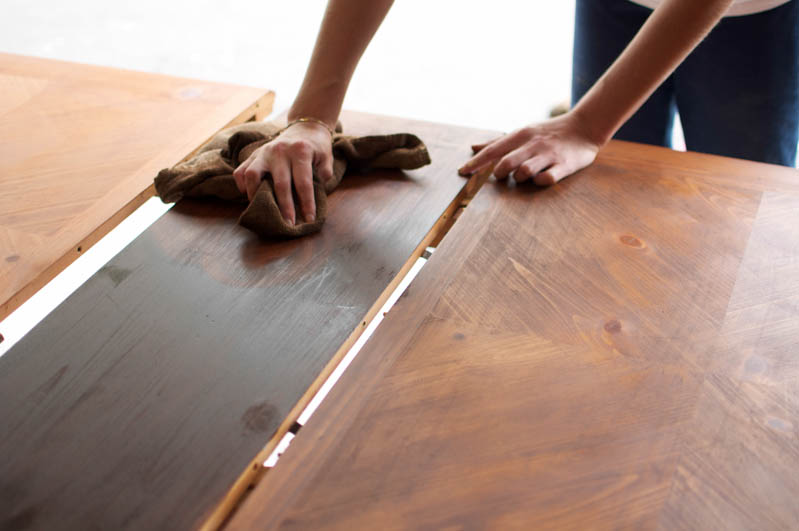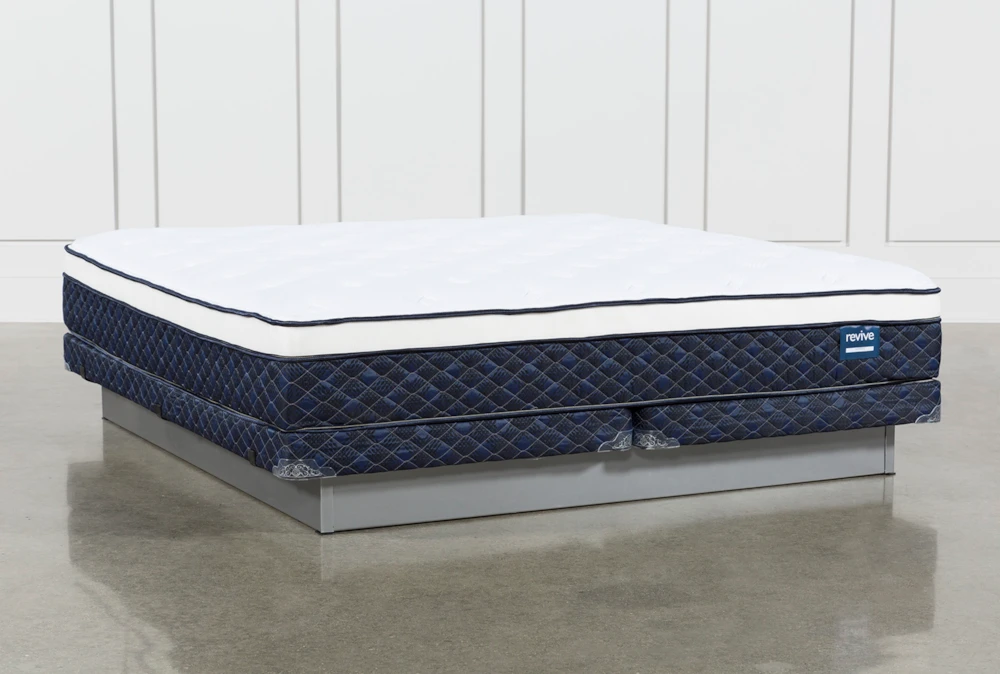1. Causes of Black Specks in Kitchen Sink
If you've noticed small black specks in your kitchen sink, you're not alone. Many homeowners have experienced this issue, which can be both frustrating and concerning. But what exactly causes these black specks to appear? There are a few potential culprits, and understanding the root cause is the first step in getting rid of them.
One of the most common causes of black specks in kitchen sinks is the buildup of mineral deposits. Over time, minerals like calcium and magnesium can accumulate in your sink's pipes and faucet, leading to the formation of small black specks. These specks may also be caused by mold or mildew growth in your sink's drain, especially if you don't regularly clean or disinfect it.
In some cases, the black specks may be a result of a faulty water filtration system or the presence of iron or manganese in your water supply. These minerals can react with oxygen and create a dark, rust-like substance that can collect in your sink.
If you have a garbage disposal, it's also possible that food particles or waste have built up and begun to decompose, causing the appearance of black specks. Whatever the cause may be, it's important to address it promptly to keep your kitchen sink clean and functioning properly.
2. How to Get Rid of Black Specks in Kitchen Sink
Now that you know some of the potential causes of black specks in your kitchen sink, it's time to tackle the problem. Fortunately, there are several effective methods for getting rid of these pesky specks and preventing them from coming back.
If the specks are caused by mineral buildup, you can try using a descaling solution or a mixture of vinegar and baking soda to dissolve the deposits. Simply pour the solution down your sink's drain and let it sit for a few hours before rinsing it out. For larger deposits, you may need to use a wire brush or pipe cleaner to scrub them away.
If the specks are due to mold or mildew growth, you can use a mixture of bleach and water to disinfect your sink's drain. Be sure to wear gloves and use caution when handling bleach, and make sure to thoroughly rinse the drain after using this method.
To prevent future buildup, consider installing a water softener or regularly using a descaling solution. It's also important to keep your sink clean and dry, as moisture can contribute to the growth of mold and bacteria.
3. Black Specks in Kitchen Sink: What They Mean and How to Fix Them
While black specks in your kitchen sink may seem like a harmless annoyance, they could actually be a sign of a larger issue. If left untreated, mineral buildup or mold growth can lead to clogged pipes, unpleasant odors, and even health hazards.
If you've tried cleaning your sink and the specks keep coming back, it's best to consult a professional plumber. They can help determine the root cause of the problem and provide a more permanent solution, such as replacing damaged pipes or installing a water filtration system.
Ignoring the issue or using temporary fixes may end up costing you more in the long run, so it's important to address black specks in your kitchen sink as soon as possible.
4. Common Sources of Black Specks in Kitchen Sink
In addition to the causes mentioned above, there are a few other potential sources of black specks in kitchen sinks that you should be aware of.
If you have a stainless steel sink, the black specks may be a result of corrosion caused by exposure to certain chemicals or cleaning agents. To avoid this, make sure to use non-abrasive cleaners and rinse your sink thoroughly after each use.
In rare cases, the specks may be a sign of a more serious plumbing issue, such as a cracked or damaged pipe. If you suspect this may be the case, it's best to call a professional plumber for an inspection.
Lastly, if you have a well water system, the black specks may be a result of sediment or debris in your water supply. In this case, it's important to regularly test and treat your well water to prevent these issues.
5. DIY Solutions for Black Specks in Kitchen Sink
If you prefer to try DIY solutions before calling a professional for help, there are a few other methods you can try for getting rid of black specks in your kitchen sink.
For instance, some people have had success using a combination of lemon juice and salt to scrub away mineral deposits. Others have had luck using a mixture of hydrogen peroxide and baking soda to disinfect their sink's drain.
However, keep in mind that these methods may not work for everyone, and it's important to use caution and follow proper safety measures when handling these substances.
6. How to Prevent Black Specks in Kitchen Sink
The best way to deal with black specks in your kitchen sink is to prevent them from appearing in the first place. By taking some preventative measures, you can keep your sink clean and free of any unsightly specks.
First and foremost, make sure to regularly clean and disinfect your sink's drain using a mild cleaner or a mixture of vinegar and water. This will help prevent any buildup of mold, bacteria, or mineral deposits.
You should also avoid using harsh chemicals or abrasive cleaners on your sink, as these can damage the surface and lead to corrosion or other issues.
Lastly, try to limit the amount of food waste and debris that goes down your sink's drain. Use a sink strainer or compost food scraps instead of throwing them in the garbage disposal, which can contribute to the growth of black specks.
7. Black Specks in Kitchen Sink: Is It Harmful?
One of the most common concerns about black specks in kitchen sinks is whether they are harmful to your health. While they may not pose an immediate danger, it's important to address the issue to prevent any potential health hazards.
Some types of mold or bacteria that may be present in your sink's drain can cause respiratory issues, allergic reactions, or other health problems. Additionally, if the specks are caused by mineral buildup, they can contribute to clogged pipes or other plumbing issues over time.
To ensure the safety and cleanliness of your kitchen sink, it's best to get rid of black specks as soon as you notice them.
8. Professional Solutions for Black Specks in Kitchen Sink
If you've tried DIY methods and are still struggling with black specks in your kitchen sink, it may be time to call in a professional. A plumber can thoroughly inspect your sink and pipes to determine the root cause of the problem and provide a more permanent solution.
They may recommend installing a water filtration system, replacing damaged pipes, or using specialized cleaning tools to remove stubborn mineral deposits or mold growth.
While this may require a larger investment upfront, it can save you time, effort, and money in the long run by preventing recurring issues with black specks in your sink.
9. Black Specks in Kitchen Sink: Common Misconceptions
There are a few misconceptions about black specks in kitchen sinks that are important to address. One of the most common is that these specks are caused by poor hygiene or a dirty kitchen.
In reality, black specks can appear even in the cleanest and most well-maintained kitchens. They are often a result of mineral buildup or mold growth, which can happen regardless of how often you clean your sink.
Another misconception is that you can simply ignore the issue and it will go away on its own. Unfortunately, this is not the case, and ignoring black specks can lead to more serious plumbing issues or health hazards. It's best to address the problem as soon as you notice it.
10. How to Clean and Maintain Your Kitchen Sink to Avoid Black Specks
In addition to the preventative measures mentioned earlier, there are a few other ways to keep your kitchen sink clean and free of black specks.
First, make sure to regularly clean and disinfect your sink's drain using a mild cleaner or a mixture of vinegar and water. You can also use a drain brush to remove any buildup of food particles or debris.
Additionally, consider using a water softener or installing a water filtration system to prevent mineral buildup in your sink. And don't forget to regularly wipe down and dry your sink's surface to prevent the growth of mold or bacteria.
By following these tips and staying on top of maintenance, you can keep your kitchen sink clean, functional, and free of black specks.
The Importance of a Clean and Well-Maintained Kitchen Sink
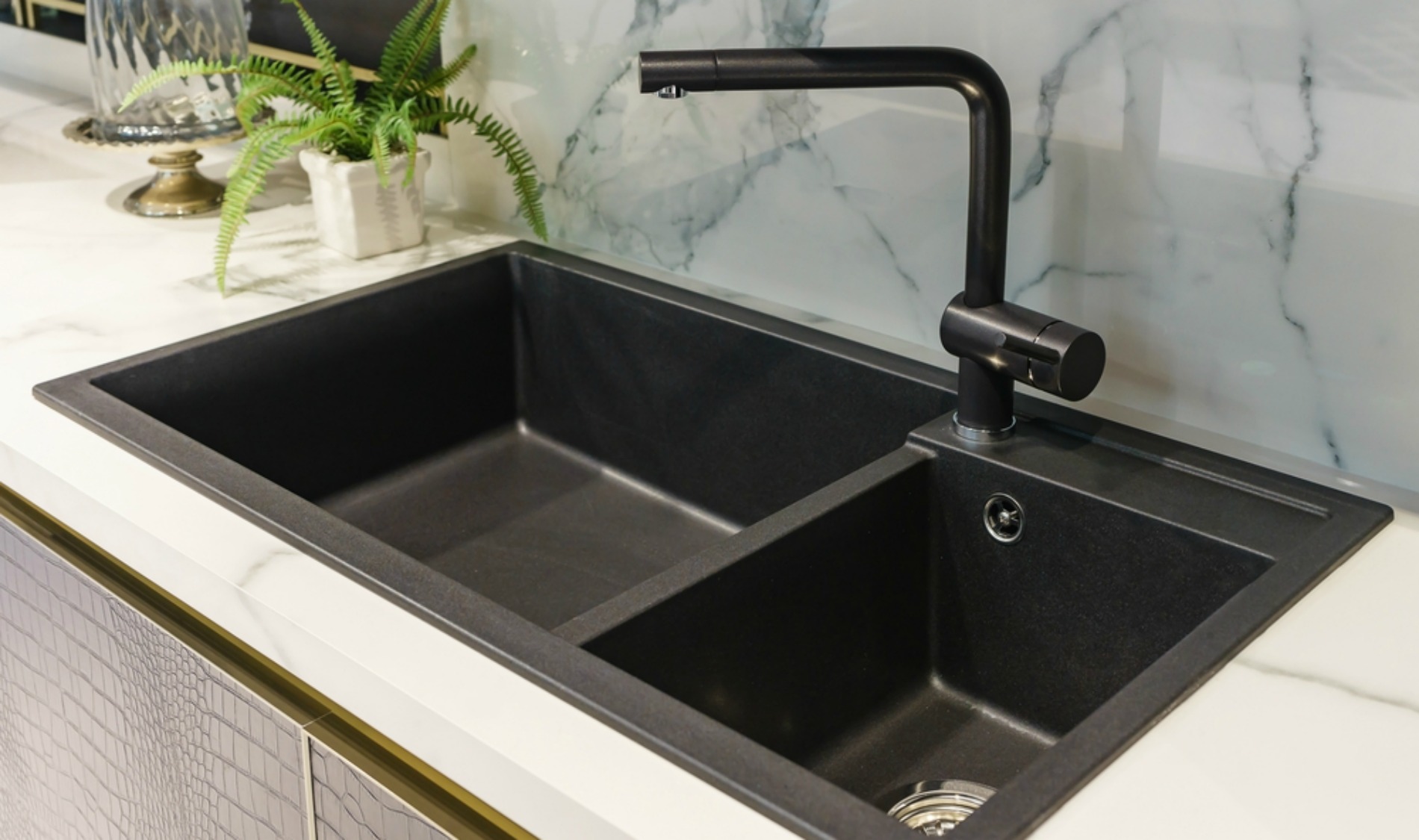
Keep Your Kitchen Sink Free of Black Specks
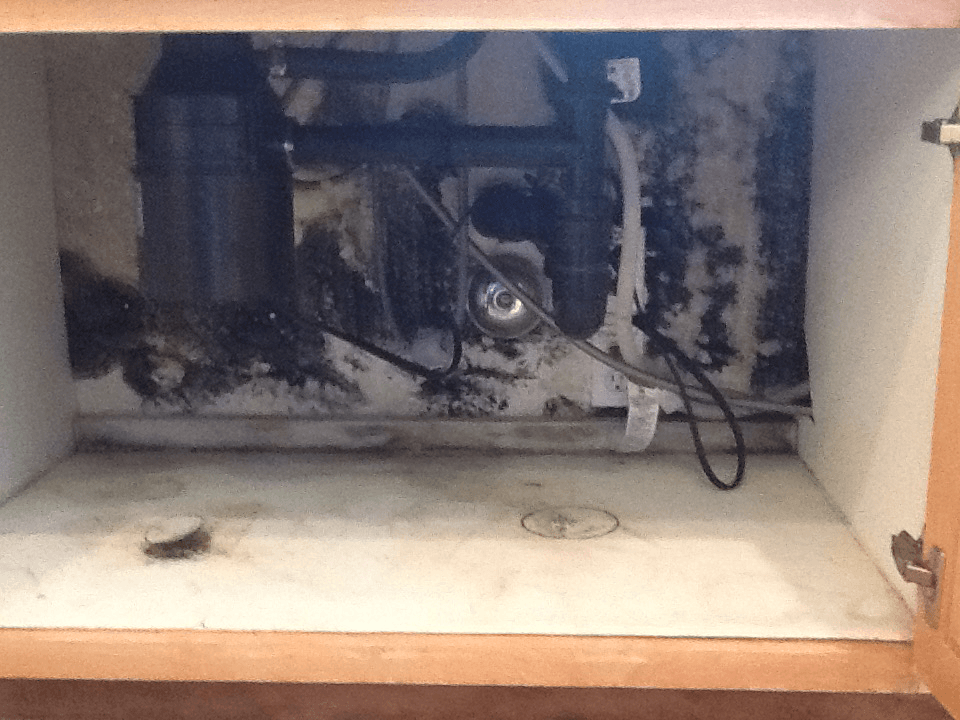 A clean and well-maintained kitchen sink is an essential aspect of any house design. Not only does it add to the overall aesthetic appeal of the kitchen, but it also plays a significant role in ensuring the health and hygiene of the household. However, one common issue that many homeowners face is the presence of black specks in their kitchen sink. These tiny black particles can be a cause of concern for many, but understanding the root cause is crucial in effectively addressing this problem.
A clean and well-maintained kitchen sink is an essential aspect of any house design. Not only does it add to the overall aesthetic appeal of the kitchen, but it also plays a significant role in ensuring the health and hygiene of the household. However, one common issue that many homeowners face is the presence of black specks in their kitchen sink. These tiny black particles can be a cause of concern for many, but understanding the root cause is crucial in effectively addressing this problem.
The Possible Causes of Black Specks in Your Kitchen Sink
 There are several reasons why black specks may appear in your kitchen sink. One of the main culprits is mold, which can thrive in damp and dark environments. If your sink is not properly cleaned and dried after each use, you may notice the growth of mold and mildew, resulting in the presence of black specks. Another possible cause is the buildup of mineral deposits, especially if you have hard water. These deposits can also appear in the form of black specks, giving your sink a dirty and unappealing look.
There are several reasons why black specks may appear in your kitchen sink. One of the main culprits is mold, which can thrive in damp and dark environments. If your sink is not properly cleaned and dried after each use, you may notice the growth of mold and mildew, resulting in the presence of black specks. Another possible cause is the buildup of mineral deposits, especially if you have hard water. These deposits can also appear in the form of black specks, giving your sink a dirty and unappealing look.
Why You Should Address the Issue Immediately
 Apart from being an eyesore, black specks in your kitchen sink can be a breeding ground for bacteria and other harmful microorganisms. These particles can easily contaminate your dishes, utensils, and even the water you use for cooking and drinking. If left untreated, they can also cause foul odors, making it unpleasant to use your sink. Additionally, a dirty and unhygienic sink can affect the overall cleanliness of your kitchen, which can lead to food contamination and potential health hazards.
Apart from being an eyesore, black specks in your kitchen sink can be a breeding ground for bacteria and other harmful microorganisms. These particles can easily contaminate your dishes, utensils, and even the water you use for cooking and drinking. If left untreated, they can also cause foul odors, making it unpleasant to use your sink. Additionally, a dirty and unhygienic sink can affect the overall cleanliness of your kitchen, which can lead to food contamination and potential health hazards.
Effective Ways to Get Rid of Black Specks in Your Kitchen Sink
 The good news is that there are simple and effective ways to address the issue of black specks in your kitchen sink. Regularly cleaning and drying your sink after each use can prevent the growth of mold and mildew. Using a mixture of vinegar and baking soda can help remove mineral deposits and disinfect your sink. You can also consider installing a water softener to reduce the amount of mineral buildup in your water. Keeping your sink clean and dry is key to preventing the recurrence of black specks.
The good news is that there are simple and effective ways to address the issue of black specks in your kitchen sink. Regularly cleaning and drying your sink after each use can prevent the growth of mold and mildew. Using a mixture of vinegar and baking soda can help remove mineral deposits and disinfect your sink. You can also consider installing a water softener to reduce the amount of mineral buildup in your water. Keeping your sink clean and dry is key to preventing the recurrence of black specks.
Conclusion
 In conclusion, having black specks in your kitchen sink is not only an aesthetic issue but also a health concern. By understanding the causes and taking the necessary steps to prevent and address the problem, you can ensure a clean and hygienic kitchen sink. Remember to regularly clean and dry your sink, use natural cleaning solutions, and address any plumbing issues that may contribute to the buildup of black specks. With these tips, you can maintain a beautiful and functional kitchen sink in your house.
In conclusion, having black specks in your kitchen sink is not only an aesthetic issue but also a health concern. By understanding the causes and taking the necessary steps to prevent and address the problem, you can ensure a clean and hygienic kitchen sink. Remember to regularly clean and dry your sink, use natural cleaning solutions, and address any plumbing issues that may contribute to the buildup of black specks. With these tips, you can maintain a beautiful and functional kitchen sink in your house.
